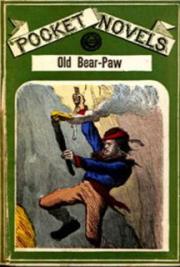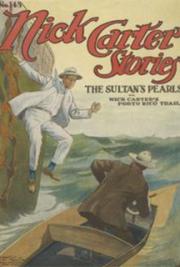CHAPTER XLI
“MY CITY—OUR CITY”
“JEAN!”
Wayne had taken both her hands and stood smiling down upon her before she grasped the fact of his presence.
“I didn’t understand—it isn’t fair—Mrs. Blair said——”
“I’m just as surprised as you are, Jean—and it isn’t fair, of course; but Fanny likes to think herself the instrument of Providence. I hope she is!”
His high spirits evoked no response at once. She was on guard against him, and not lightly to be won to the plane of happiness to which her coming had lifted him. He sat down facing her by the broad windows whence the eye was led as from a hill-top to the horizon. He asked about her later experiences, and they took account of each other soberly as they talked. The changes in both were marked. She was now a successful artist, whose work was a feature of the periodical that lay on the window-ledge beside her. Her hat and gown bore the metropolitan accent—no hint here of the girl he accosted so long ago before Sargent’s picture!
It was difficult to resist the appeal in his eyes, that were wonderfully clear and straightforward and earnest behind the happiness that shone in them. When she had answered his questions as to her southwestern experiences silence fell between them. She was afraid to ask about himself, for fear of replies that might lead to dangerous ground. She glanced over her shoulder toward the door uneasily.
“Oh, Fanny isn’t going yet! She has a lot to tell John,” he laughed.
“Mrs. Blair is going to New York with me to-night. That’s why I stopped here.”
“Did she say she was going to New York to-night? Well, she isn’t!”
“Her trunk’s at the station; she usually knows what she’s doing, doesn’t she?”
“Well, usually; but not this time—for the reason that she can’t leave you here after asking you to stop, and you——”
“I have an engagement at the Hemisphere office at noon to-morrow,” she replied, determined not to be disarmed by his bantering tone.
“Oh, they will wait! Everybody waits for illustrators—they’re the autocrats of the publishing business.”
“I make a point of keeping my word, Mr. Craighill,” she remarked severely.
He rose with an abruptness that startled her.
“Jean, we are wasting time, you and I. You didn’t answer my letters—and I wrote you a dozen; you wouldn’t see me when I knocked at your door in New York; and Fanny’s efforts to have us visit her at York Harbour failed all summer because you wouldn’t go.”
“I was busy, and I didn’t——”
“You didn’t want to see me? Is that what you were going to say?”
“No; I didn’t mean that—I hope to have time for my friends when I get better established in my work. My opportunity is unusual—everyone is so kind.”
“Your genius is remarkable, and everyone has to be kind. But Jean——”
“Well, Mr. Craighill.”
“It’s getting dark and John is waiting to take us to Rosedale for dinner, so I’m going to say something to you that’s very important to me; please, Jean, won’t you listen?”
She rose as though to leave him; but his manner had changed, and she stood still, compelled by the very seriousness with which he spoke.
“I want you to look at me. A little less than two years ago I saw you and spoke to you for the first time at the Institute. I had sunk so low that decent women avoided me; I sought to begin a flirtation with you with no good thought in my heart—I was as low as that, Jean. You flung my own name at me—it was a weapon in your hands, and it struck fire on my pride. But I had gone too far to be stopped by a word. I had resolved upon evil things; I hated my father—I meant to humiliate him—to make him suffer. But believe me, Jean, that is all past now, a closed and sealed book. You told me I must not try to change my ways for you; and I made the mistake of expressing gratitude when I wrote, for all you have meant to me and done for me. I am not making that mistake now. You said a great thing to me that morning at my father’s house when you pointed out the nobility of labour; and I shall remember to my last hour the way you held out your hands as you opened to me your own life and heart. Then those fine fellows I met at Stoddard’s house in Virginia helped me—more than I realized at the time. It wasn’t much I did there at Denbeigh, and I couldn’t have done it at all if it had not been for Joe—Joe who really gave his life for me—I can’t forget that. But I came to myself up there. I have no illusions about myself; I am only a weak man, but I am trying to live a clean life. There is no woman anywhere that I can’t look in the face, and no man that can say I haven’t been square with him. I have some faith in myself now, and that’s the greatest gain. But I know I ask a great deal when I ask you to give up your work for me—and yet I ask it. Remember, there is no gratitude in this—you are a woman and I am a man—and I love you.”
She raised her eyes to his in a long, searching look, but when he had taken her hands she still held herself away from him.
“Oh, it isn’t my work, it isn’t that; I know how little that is!”
“But you love me, don’t you, Jean?”
“That isn’t the question. What you forget is my own life—the bad start I made, the injury I did Joe. The more I have thought of that the more heartless it grows. And when I first knew you I was a fraud; you thought me a girl, and I had been a married woman and had left the man I married—poor Joe! and he cared so much! And you have been up there in my country, and you know what I came from. My people were just those people—and yours are the strong and rich. I only happened to stray into your life—I don’t belong there. You have all been good to me; but I can’t let you do this. You have too much to give, and I——”
He laughed into her eyes, heeding nothing she said. He was drawing off her gloves, and he flung them down and kissed her hands and held them resisting to his face. Then he turned to the window, his arm clasping her, and looked out upon the darkling city that lay below—a vast amphitheatre, with serried ridges of twinkling lights rising on the distant hills to meet the stars. The glow of the streets and shops stole upward to their window in the towering building. Far away along the river the huge organ-pipes of the great mills sent their cloud of smoke and flame into the amber dusk. Trains moved like bright serpents along the valley. The strength of the iron hills thrilled through him as he looked upon the torches of the gods of power; the city of his birth sang a great psalm to him as he stood there beside the woman he loved.
“Jean, dear, I always loved the way you spoke of ‘my country’—your hills away off yonder; and I want us to learn to speak of my city—our city—in just that way. Harsh things have been said of the old town, and I have done my share, God knows, to make us despised and hated. I want to do what I can, no matter how little it may be, to change all that. You told me I must help myself before I could help others, and when you are sure of me we must do what we can for the poor and the luckless, for the women who strive and the men who fall, here in the City of the Iron Heart. We must carry that with us into our lives.”
Her arms stole round his neck, and her cheek as it touched his was wet. Their lips met in a long kiss.
“Not the iron heart, Wayne dear,” she whispered, “but the City of the Heart of Gold.”
THE END







